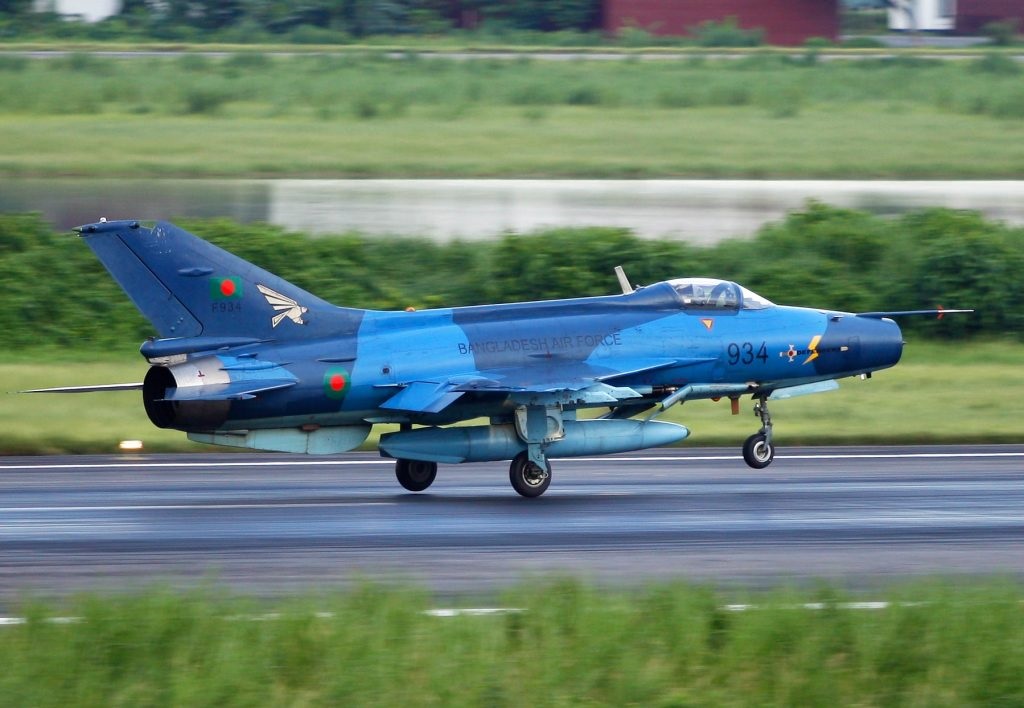Modernising The Bangladesh Air Force: Time to Turn Away From China and Russia
Khandakar Tahmid Rejwan | 12 September 2024
The Bangladesh Air Force (BAF) needs modernisation. This time, rather than arming itself via Russia and China again, it should look west.
The deposing of former prime minister Sheikh Hasina presents an opportunity for a change of direction. The new government of Muhammad Yunus can modernise the BAF with western equipment. Doing so will strengthen Bangladesh’s long-standing foreign policy of non-alignment. Major BAF weapon systems, such as fighters, utility helicopters and surface-to-air missiles, were made by Russia or China. They are already decades old and have proven unreliable in the field.
Since independence in 1971, Bangladesh has stressed its principle of non-alignment. In maintaining this stance, Dhaka should be careful about Beijing’s and Moscow’s attempts to co-opt developing nations for their strategic advantage. To maintain neutrality, Bangladesh must strike a balance by also turning westward, curtailing over-reliance on Russia and China.
The dependence of Bangladesh’s neighbour Myanmar on China and of India on Russia are further reasons for Bangladesh to seek the superior equipment from the West.
Dhaka already faces tremendous challenges in executing its guiding modernisation program, ‘Forces Goal 2030’. It was offered as a solution to the BAF’s inability to operate modern aircraft, the risks to personnel lives from the existing systems and the need to enforce Bangladesh’s sovereign air space. It also aimed at bringing diversity to the armoury with NATO equipment, but it is likely that it will fall short of this goal.
According to a 1999 RAND report, some developing countries buy Chinese weapons because the equipment is ‘cheap and available’. The same can be said about Russian arms sales. And both of those countries also try to achieve strategic influence over a developing nation by providing broad access to their designs.
The BAF has had to pay a hefty price for this compromise. Four of the 16 Russian Yak-130 fighter-trainers crashed in less than a decade, in one case resulting in the death of the pilot. A pilot ‘went missing’ and was never found when a F-7MB newly acquired from China crashed in the Bay of Bengal in 2015. It has become normal for Chinese-made fighters and basic trainers like K-8 or PT-6 to crash due to malfunctions.
Dhaka should start procuring high-end systems, such as multi-role combat aircraft from reliable and efficient western suppliers. Potential partners include European countries, which make such fighters as the Rafale, Typhoon and Gripen. Though not strictly Western, Japan and South Korea could supply other types of aircraft.
All these states share warm bilateral ties with Bangladesh. Britain and the US perform joint exercises with Bangladesh and pay reciprocal visits. Because of these ties, the BAF’s personnel would welcome the introduction of Western equipment.
The West was critical of Hasina’s blind eye to eroding democratic values and her rigged re-election campaign. Consequently, defence ties were not deepened during her second tenure from 2009 to 2024. That was another reason for Hasina preferring to buy from Beijing and Moscow.
There are also military-technical reasons for the BAF to look to the west in its attempts to modernise. The war in Ukraine has become a graveyard of the Russian military-industrial complex. The sheer amount of Russian hardware lost against a much smaller army is shocking. Chinese systems are predominantly based off on Russian systems and are not battle-tested, as China has not seen an active combat situation since 1979.
Bangladesh’s change of government opens an opportunity to buy from democratic countries that will no longer hesitate in dealing with it as an autocracy. It’s a chance that should be seized.
Khandakar Tahmid Rejwan is a research data analyst at the Bangladesh Peace Observatory-Centre for Alternatives.
This article was originally published on The Strategist.
Views in this article are author’s own and do not necessarily reflect CGS policy.
